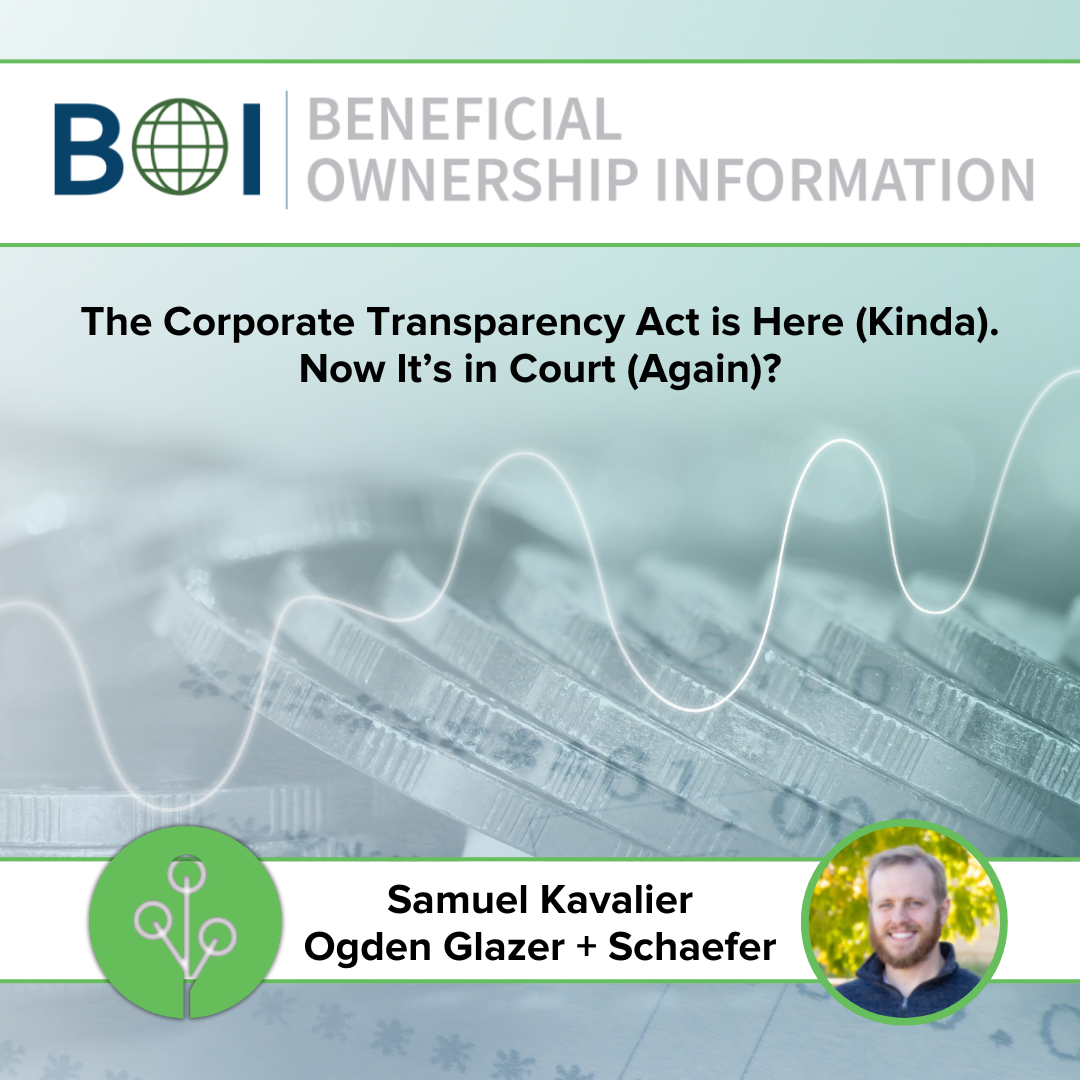My pause on BOI blogging content was solid, but recent events in federal court have caused me to spring back into action. For those of you tuning back in, this post relates to our firm’s series about the Corporate Transparency Act and Beneficial Ownership Reporting. Please follow the link here to see all our firm’s posts on this topic.
When I last posted about legal challenges to the Corporate Transparency Act in federal court (see here), a federal court in Alabama had ordered a preliminary injunction to prevent the federal government from enforcing the BOI reporting requirements specifically against the plaintiffs in that specific lawsuit. To provide a quick update on that litigation, that decision was appealed to the 11th Circuit (the next level in the chain of appeal), where oral arguments were heard on September 26th. As of the writing of this post, the 11th Circuit has yet to issue a ruling, so the injunction as it relates to the specific plaintiffs is still in force.
This brings us to the subject of this post. On December 3rd, a federal court in Texas issued a court order for a preliminary injunction against the enforcement of the Corporate Transparency Act. In its order, the Texas court took a similar position to the Alabama court, determining that Congress likely lacked the enumerated constitutional authority to impose the BOI reporting requirements specified in the Corporate Transparency Act. Unlike the Alabama court, whose injunction focused on the specific plaintiffs in the litigation, this new injunction from the Texas court applies nationwide and prevents FinCEN from enforcing the BOI reporting requirements against any reporting company. The injunction stays the enforcement of the reporting requirements, as well as the reporting deadlines. The federal government is likely to appeal the Texas court’s decision, similar to its appeal of the Alabama court decision (the appeal will be to the 5th Circuit instead of the 11th Circuit). Given the timeline on the 11th Circuit appeal, that ruling would likely be come down sometime next year.
In the meantime, FinCEN announced on its website that it would comply the court order by not requiring BOI reporting while the court order is in effect. The announcement goes on to say that reporting companies may nonetheless voluntarily file BOI reports.
Alright, so there is now a nationwide injunction against the enforcement of the BOI reporting requirements, and FinCEN is complying with the order. What does that mean for the readers (especially those who are beneficial owners)? Here are some takeaways:
- For the foreseeable future, FinCEN will not be enforcing the January 1, 2025 reporting deadline for reporting companies existing as of December 21, 2023.
- For the foreseeable future, FinCEN will not be enforcing the deadline for reporting companies formed in 2024 (within 90 days of formation) and for reporting companies formed after post-2024 (within 30 days of formation).
- Despite the injunction, reporting companies might still consider filing BOI reports. This is for two reasons:
- As I mentioned above, FinCEN is still accepting voluntary submissions of BOI reports through its online portal.
- FinCEN will only comply with the order for as long as the order is in effect. That is notably different than FinCEN promising never to enforce the reporting requirements. If the injunction is overturned or expires for whatever reason, it would be reasonable to expect that the BOI reporting requirements will be back.
- Getting reporting companies’ attorneys involved can help reporting companies interpret the court rulings and keep them abreast of developments to assist in making informed decisions.
Thanks for reading!

